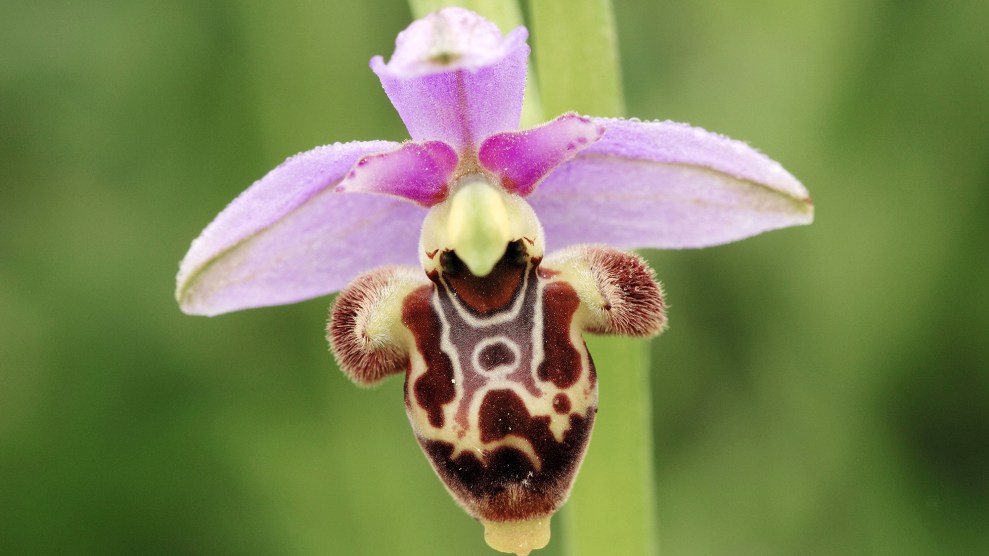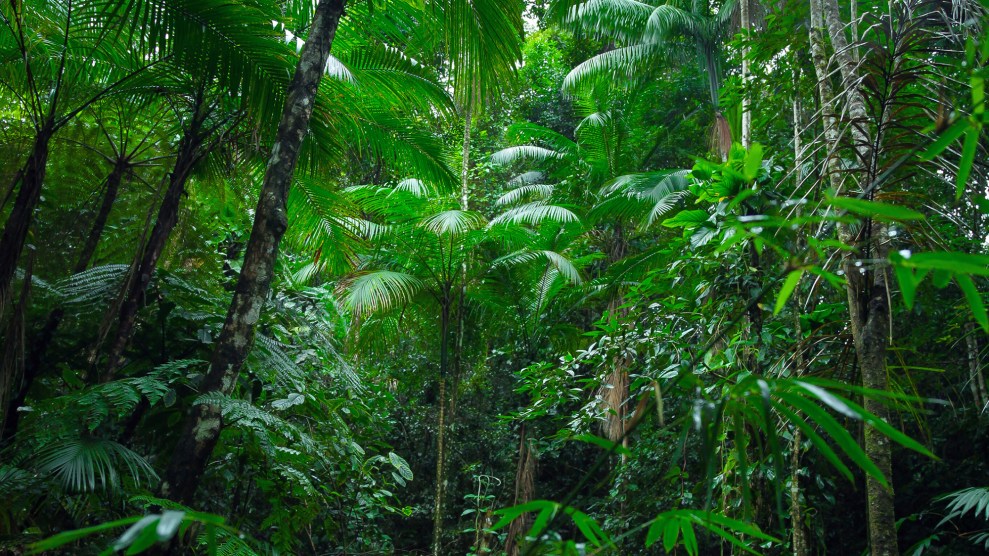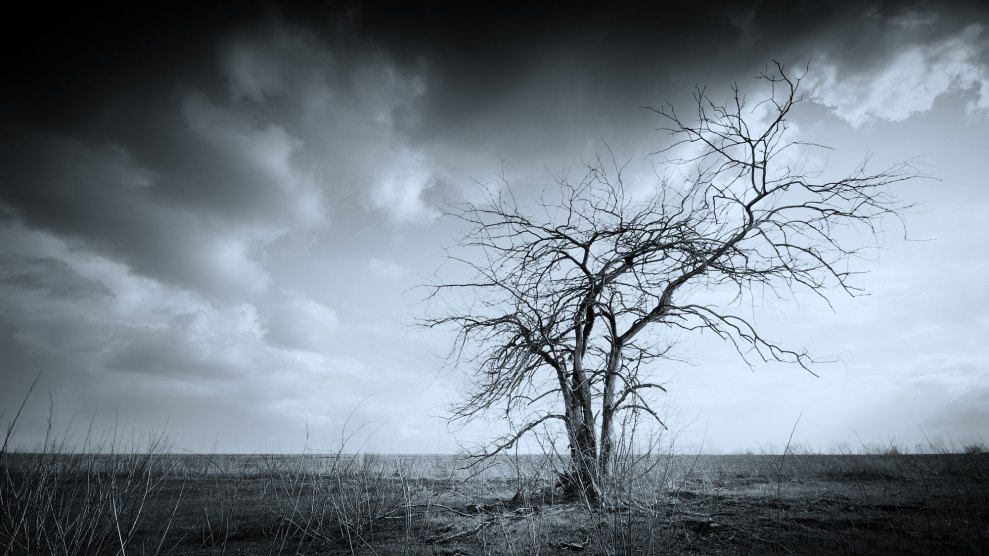
A late spider orchid.ZUMA Press
This story was originally published by the Guardian and is reproduced here as part of the Climate Desk collaboration.
A spate of thefts of rare orchids from sites in southern England has concerned scientists, who say endangered species may be at risk. Orchid experts believe that the plants, from locations including in Sussex and Kent, may have been “stolen to order.”
Conservationists at the Sussex Wildlife Trust were dismayed last week to hear of at least 10 burnt-tip orchids missing from a national nature reserve at Mount Caburn, while in Kent the Hardy Orchid Society reported that 30 late spider orchids had been taken from a site in Folkestone.
Neil Evans, of the Hardy Orchid Society, said: “The theft represents a major loss to the population. They are only found in this country in a few sites in Kent.”
Burnt orchids and late spider orchids are threatened in Britain, with the former listed as endangered after substantial declines, and the latter assessed as having an estimated population of only a few hundred plants.
There are fears that these thefts could put pressure on already dwindling orchid populations, already affected by factors including agriculture and development, as well as in some cases being pushed by collectors towards local extinction.
“It is most certainly a risk to the survival of rare species,” Dr Peter Stroh, the scientific officer at the Botanical Society of Britain and Ireland (BSBI), told the Guardian. “Collecting orchids was a popular pastime for some in Victorian times, and it actually led to the extinction of one orchid species in Britain—Spiranthes aestivalis (summer lady’s tresses)—and almost resulted in the extinction of another, the lady’s slipper orchid, which is now found at only one native site, though conservation efforts have led to establishing it in a number of former sites, at great expense.”
We were saddened & disappointed to hear about the theft of at least 10 Burnt Orchids from Mount Caburn National Nature Reserve, adjacent to our Malling Down & Southerham nature reserves.
If you have any information, please contact Sussex Police on 101. #wildflowerhour #Lewes pic.twitter.com/vU1xPkVxlf
— Sussex Wildlife Trust 🦔 (@SussexWildlife) May 24, 2022
“As well as being an especially selfish act, digging up orchids is also rather mindless vandalism. Orchids have a very strong symbiotic association with specific mycorrhizae (underground fungal ‘roots’), so it’s unlikely that the plants that were stolen would survive,” Stroh added. “Stealing a plant denies everyone else the opportunity to appreciate it, and also, in the case of very rare species such as the spider orchid, reduces the genetic pool and so potentially the health and long-term future of remaining populations.”
But keeping the sites secret to avoid theft, as some specialists suggest, brings its own problems. Richard Bateman, an orchid specialist associated with Kew Gardens, told the Guardian about one episode where a very rare orchid appeared in a gravel pit near St Albans seven or eight years ago. “Only four people ever saw it, of which I was one, and I was sworn to secrecy. The consequence of that was that four years later, several tons of gravel were dumped on top of the orchid and it no longer exists.”
“Meanwhile the last surviving orchid of one species in a secret location in Yorkshire is kept in a metal cage surrounded by wildlife trail cameras, and even those with impeccable research credentials are not allowed to see it.”
Because of the scale and precise nature of the thefts, some believe they could have been stolen “to order” by a professional thief.
Bateman said: “What makes this recent set of thefts interesting—it looks very much to me as they are being stolen to order for someone who wants to have wild, British examples of this plant. Members of the Hardy Orchid Society can easily grow these species from seed, so whoever is ordering these orchids wants examples of this plant that were growing in the wild.”
“It’s like the Da Vinci Code, I’m afraid,” he said. “Some foolish people insist on possessing the ‘real Mona Lisa’ rather than a copy.”















